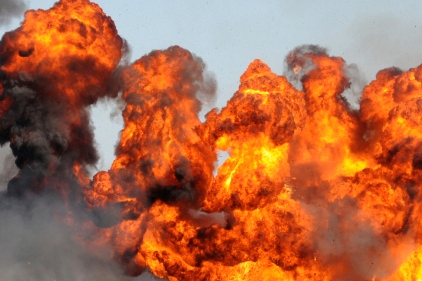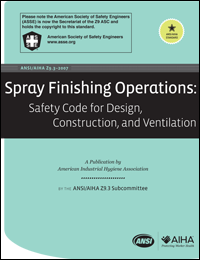AIHA calls for tougher combustible dust legislation
Supports pending bill, but suggests changes

 The American Industrial Hygiene Association (AIHA) says it supports a bill that would direct OSHA to to issue an interim and final standard regarding worker exposure to combustible dust – with some reservations.
The American Industrial Hygiene Association (AIHA) says it supports a bill that would direct OSHA to to issue an interim and final standard regarding worker exposure to combustible dust – with some reservations.
Introduced by Representative George Miller (D-CA), HR 691 will hopefully “be the starting point for further debate and action on combustible dust,” said AIHA president Allan K. Fleeger, CIH, CSP, in a recent letter of support to Miller.
Nonetheless, the AIHA is concerned that the bill doesn’t go far enough in addressing what it considers inadequacies in OSHA’s Combustible Dust National Emphasis Program (NEP), which was reissued in 2008 following an explosion at a sugar refinery in Georgia that killed 14 workers and seriously injured 60 others.
“This reissued NEP increased enforcement activities and focused on specific industry groups that have experienced frequent combustible dust incidents,” noted Fleeger. “OSHA announced it will inspect facilities that create or handle combustible dusts which can cause burning or other fire hazards and can lead to explosions.”
However, he pointed out that OSHA did not formally act on a Chemical Safety and Hazard Investigation Board recommendation to issue a a standard designed to prevent combustible dust fires and explosions in general industry (other than the NEP).
“No other standard comprehensively addresses combustible dust explosion hazards,” said Fleeger. “AIHA remains concerned the OSHA Hazard Communication Standard (HCS) inadequately addresses dust explosion hazards and fails to ensure safe work practices and guidance documents are included in MSDSs. Because of this, AIHA believes there is an urgent need for further action from the agency to address this issue.”
An addition to an interim final standard, HR 691 requires that a final standard be issued not later than 18 months after enactment of the bill – a deadline the AIHA thinks may be difficult to meet.
Fleeger also said his organization would like to see the following added to the bill: “Requirements for the periodic inspection and maintenance of engineering controls and equipment, recordkeeping of the results of the inspections, and correction of any problems found during the inspections within a reasonable time.”
AIHA Government Affairs Director Aaron Trippler doesn’t have high hopes for the bill. “This bill has also been introduced several times in previous sessions and has yet to make it through the process. The bill passed the House in the last session. Going to be very difficult to see this enacted.”
Looking for a reprint of this article?
From high-res PDFs to custom plaques, order your copy today!




